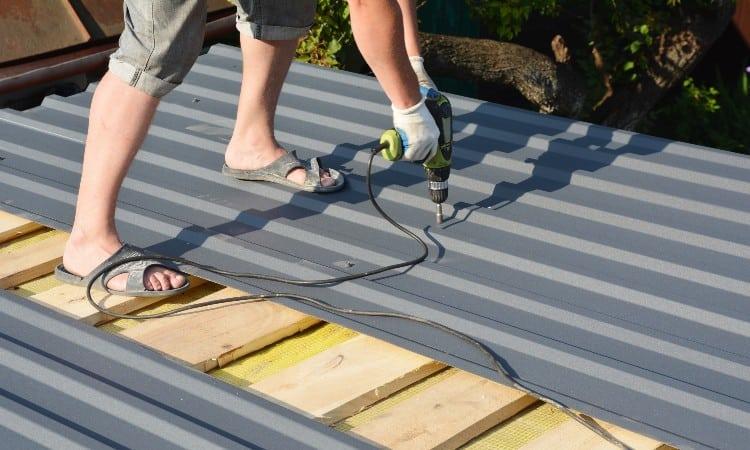Metal roofing has become a popular choice among homeowners and builders due to its durability, longevity, and energy efficiency. When installing metal roofing, it is essential to have a solid and reliable base for the roofing materials. Oriented Strand Board (OSB) is a commonly used sheathing material that provides excellent support for metal roofing systems. In this comprehensive guide, we will explore the process of installing metal roofing over OSB, covering important considerations, preparation steps, and best practices to ensure a successful and long-lasting installation.

Understanding the Benefits of Installing Metal Roofing Over OSB
Metal roofing offers several advantages when installed over OSB sheathing, making it a preferred method for many construction projects.
Enhanced Structural Support
Oriented Strand Board provides a strong and stable base for the metal roofing panels. Its composition of wood strands bonded together with resins creates a solid substrate that can withstand the weight of the metal roofing materials and any external loads.
Improved Moisture Resistance
OSB is designed to resist moisture, which is particularly important in roofing applications. Properly installed OSB with appropriate sealants and flashing helps create a water-resistant barrier that protects the roof and underlying structure from water infiltration.
Energy Efficiency and Insulation
Metal roofing combined with OSB sheathing can enhance energy efficiency by providing an extra layer of insulation. The OSB acts as a thermal barrier, reducing heat transfer and helping to maintain a comfortable indoor temperature.
Installation Steps for Metal Roofing Over OSB
Installing metal roofing over OSB requires careful planning and attention to detail to ensure a successful and durable installation.
Assess Roof Deck Condition
Before proceeding with the installation, thoroughly inspect the OSB roof deck for any signs of damage, rot, or deterioration. Replace any damaged sections and ensure the entire deck is in good condition to support the weight of the metal roofing.
Install Underlayment
Once the roof deck is deemed suitable, install a high-quality underlayment over the OSB. Roofing underlayment acts as an additional moisture barrier and helps to prevent water from seeping into the structure.
Choose the Right Metal Roofing Material
Select the appropriate type of metal roofing material for your project. Whether it’s standing seam, corrugated, or metal shingles, ensure that the roofing material is compatible with the OSB sheathing and suits the architectural style of the building.
Fasten Metal Roofing Panels
Follow the manufacturer’s guidelines for fastening the metal roofing panels to the OSB sheathing. Use appropriate screws and fasteners that are designed for metal roofing applications. Properly spaced and secure fastening is crucial to prevent roof uplift during high winds.
Best Practices and Considerations
To ensure a successful installation of metal roofing over OSB, keep the following best practices and considerations in mind:
- Ventilation: Proper attic ventilation is essential to prevent moisture buildup and maintain the structural integrity of the OSB and metal roofing.
- Sealant and Flashing: Use high-quality sealants and flashing to create watertight connections at roof penetrations and intersections, such as vents, chimneys, and valleys.
- Expansion and Contraction: Metal roofing materials expand and contract with temperature changes. Allow for adequate spacing and provide expansion joints to accommodate these movements and prevent damage.
Conclusion
Installing metal roofing over OSB sheathing offers numerous benefits, including enhanced structural support, improved moisture resistance, and energy efficiency. By following the proper installation steps, using quality materials, and adhering to best practices, you can ensure a successful and long-lasting metal roofing system that provides durability, protection, and beauty for your home or building. Whether you are a homeowner or a contractor, understanding the process of installing metal roofing over OSB is key to achieving a robust and reliable roof that stands the test of time.



Leave a Reply